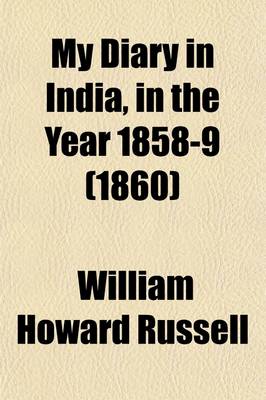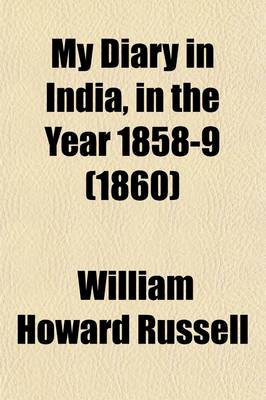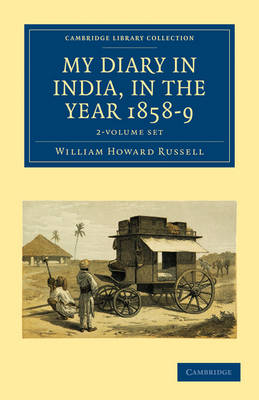Cambridge Library Collection - South Asian History
2 primary works • 3 total works
Volume 1
My Diary in India, in the Year 1858-9 (Volume 1)
by Sir William Howard Russell
Published 24 February 2010
William Howard Russell was sent to India by The Times to report on the conflict of 1857-1859 known as the Indian Mutiny. His previous work was in the Crimean War and his exposes of conditions there led to the sending of Florence Nightingale and her nurses, improvements to supplies and conditions, and to the demand for military and administrative reform. It was largely because of his contributions that war correspondence emerged as a branch of journalism. In his Indian diary, Russell criticises British snobbery as well as treatment of the Indians, and advocates leniency and conciliation. Volume 1 covers his journey to India and first impressions. It also contains some fascinating examples of first-hand coverage of the conflict and the reprisals following Lucknow and Cawnpore. Russell was horrified by such events, and concludes that only law reforms and non-military rule can ensure the prosperity of the Empire.
Volume 2
My Diary in India, in the Year 1858-9 (Volume 2)
by Sir William Howard Russell
Published 4 January 2010
William Howard Russell was sent to India by The Times to report on the conflict of 1857-1859 known as the Indian Mutiny. His previous work was in the Crimean War and his exposes of conditions there led to the sending of Florence Nightingale and her nurses, improvements to supplies and conditions, and to the demand for military and administrative reform. It was largely because of his contributions that war correspondence emerged as a new branch of journalism. In his Indian diary, Russell criticises British snobbery as well as attitudes to and treatment of the Indians, and advocates leniency and conciliation. Volume 2 continues his experiences, recounting anecdotes of military and civilian life with sympathy for the native people, intermingled with an unswerving belief in the rightness of the British presence in India. His advocacy of non-military rule, however, made the work controversial in its time.
My Diary in India, in the Year 1858-9 2 Volume Set
by Sir William Howard Russell
Published 9 December 2010
William Howard Russell was sent to India by The Times to report on the conflict of 1857-1859 known as the Indian Mutiny. His previous work was in the Crimean War and his exposes of conditions there led to the sending of Florence Nightingale and her nurses, improvements to supplies and conditions, and to the demand for military and administrative reform. It was largely because of his contributions that war correspondence emerged as a new branch of journalism. In his Indian diary, Russell criticises British snobbery as well as attitudes to and treatment of the Indians, and advocates leniency and conciliation.


